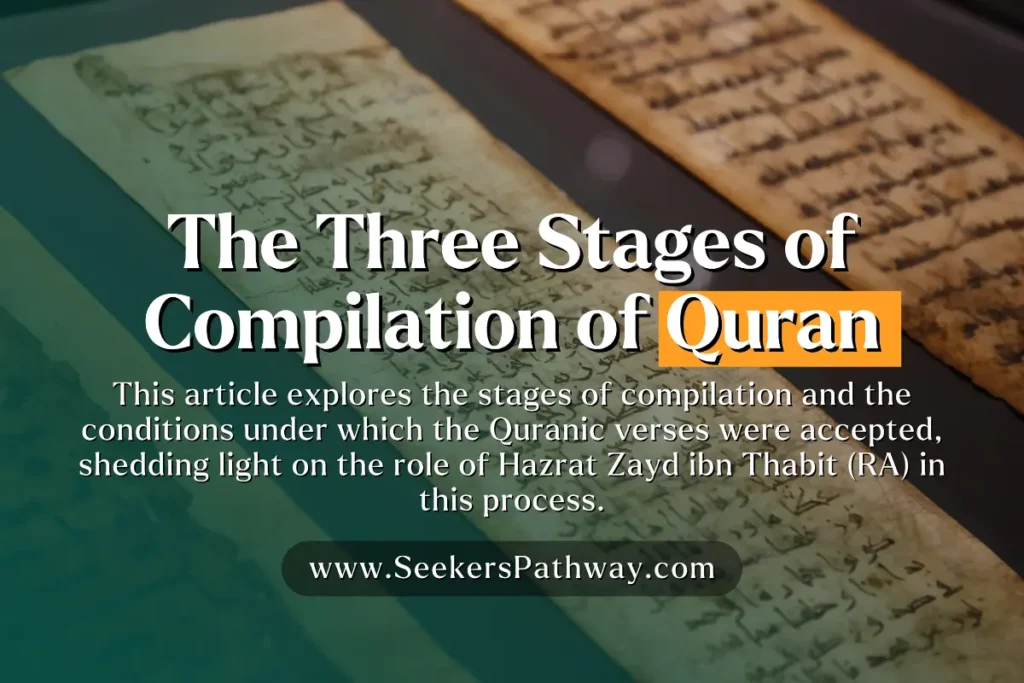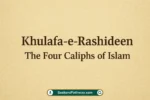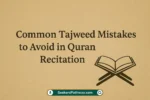The Quran, the holy book of Islam, holds a profound place in the lives of Muslims worldwide, serving as a complete guide to life and faith. Its compilation is one of the most remarkable events in Islamic history, preserving the divine revelations exactly as they were given to Prophet Muhammad (peace be upon him).
This process took place in three major stages, each critical in ensuring that the Quran remained unchanged. This article explores the stages of compilation and the conditions under which the Quranic verses were accepted, shedding light on the role of Hazrat Zayd ibn Thabit (RA) in this process.
Stage 1: During the Life of Prophet Muhammad (PBUH)
The first stage of the Quran’s compilation occurred during the Prophet Muhammad’s (PBUH) lifetime. The Quran was revealed over 23 years, from 610 CE to 632 CE, and preserved mainly through oral transmission and written fragments.
Oral Transmission
The Prophet Muhammad (PBUH) recited the Quran aloud, and his companions memorized these revelations. The companions who committed the entire Quran to memory were known as Hafiz (plural: Huffaz).
Written Preservation
The Prophet also had scribes, including Zayd ibn Thabit (RA), who wrote down the revelations on available materials like palm leaves, parchments, and bones. Although the Quran was written down during the Prophet’s lifetime, it was not compiled into a single volume. The verses were revealed at different times and written in pieces.

Stage 2: Compilation During the Caliphate of Abu Bakr (RA)
The second stage of compilation took place after the Prophet’s death. This phase was prompted by the events following the Battle of Yamama in 632 CE, where many Huffaz were martyred, raising concerns that parts of the Quran might be lost.
Initiation by Umar ibn Al-Khattab (RA)
Umar ibn Al-Khattab (RA) recognized the need to compile the Quran in written form and approached the first Caliph, Abu Bakr (RA), with this proposal. Though initially hesitant, Abu Bakr (RA) agreed, recognizing the importance of preserving the Quran.
Hazrat Zayd ibn Thabit’s (RA) Role
Abu Bakr (RA) entrusted the task of compiling the Quran to Hazrat Zayd ibn Thabit (RA), one of the Prophet’s primary scribes. Zayd was chosen because of his deep knowledge of the Quran and his role in writing it during the Prophet’s lifetime. He was also a Hafiz, ensuring that he had both memorized the Quran and written it down.
Conditions for Accepting the Verses
Zayd undertook this monumental task with a rigorous methodology. He followed specific terms to ensure the authenticity and accuracy of each verse:
- Written and Memorized Evidence: Zayd required that each verse of the Quran had to be presented in written form, which had been recorded during the Prophet’s lifetime. In addition to the written form, two witnesses who had memorized the verse were needed to confirm its authenticity. This condition ensured that the written text matched the memorized version.
- Double Witnesses Rule: The requirement of two witnesses was a safeguard to prevent any errors or unauthorized changes to the Quranic text. Each verse had to be verified by two people who had memorized it, establishing a dual verification process based on oral and written evidence.
Exception: The Case of Khuzaymah ibn Thabit (RA)
There was, however, an exceptional incident where only one witness was available for a particular verse. The verse in question was from Surah Al-Ahzab (33:23), and it was presented by Khuzaymah ibn Thabit (RA). Despite the rule of requiring two witnesses, the testimony of Khuzaymah was accepted because the Prophet Muhammad (PBUH) had once declared, “The witness of Khuzaymah is equal to the testimony of two men.” This unique status given to Khuzaymah by the Prophet (PBUH) made his single testimony as valid as two witnesses, and thus the verse was included based on his witness alone.
Completion of the Compilation
Once Zayd had gathered all the written pieces and verified them with the oral testimonies of the companions, the Quran was compiled into a single manuscript. This Mushaf was handed over to Abu Bakr (RA) and, after his death, was passed on to Umar ibn Al-Khattab (RA) and then to his daughter Hafsah (RA), the Prophet’s wife.
Stage 3: Standardization During the Caliphate of Uthman ibn Affan (RA)
The final stage of Quranic compilation occurred during the Caliphate of Uthman ibn Affan (RA), due to emerging differences in recitation among Muslims across various regions. Uthman (RA) realized the need for a standardized version of the Quran to maintain uniformity in recitation and avoid confusion, which was essential for those learning at Quran academies to ensure consistent teaching and understanding of the Quranic text.
Formation of a Committee
To standardize the Quran, Uthman (RA) appointed a committee headed by Zayd ibn Thabit (RA) once again, alongside other companions. The committee was tasked with preparing multiple copies of the Quran based on the Mushaf compiled during Abu Bakr’s time, with the text in the Qurayshi dialect, the dialect in which the Quran was originally revealed.
Distribution of the Standardized Mushaf
Uthman (RA) ordered that this standardized version of the Quran be sent to major Islamic cities, including Makkah, Basrah, Kufah, and Damascus. He also instructed that any other copies with variations be burned, ensuring that only the standard version remained in circulation. This step helped preserve the integrity of the Quran across the expanding Muslim empire.
The Uthmani Mushaf remains the universally accepted version of the Quran that is used by Muslims around the world today. It has been preserved exactly as it was compiled, with no changes to its content.
Final Words
The compilation of the Quran is a testament to the dedication and care of the Prophet’s companions, particularly Hazrat Zayd ibn Thabit (RA). The strict conditions for verifying each verse, including requiring both written evidence and the testimony of two witnesses, ensured the Quran’s preservation with unmatched precision. The exception of Khuzaymah ibn Thabit’s (RA) testimony, which the Prophet equated to two witnesses, highlights the unique cases in the process.
From its preservation during the lifetime of the Prophet Muhammad (PBUH) to its final standardization during Uthman’s caliphate, the Quran has remained unchanged. This meticulous process guarantees the authenticity of the Quran, fulfilling the divine promise of its protection for all time.










